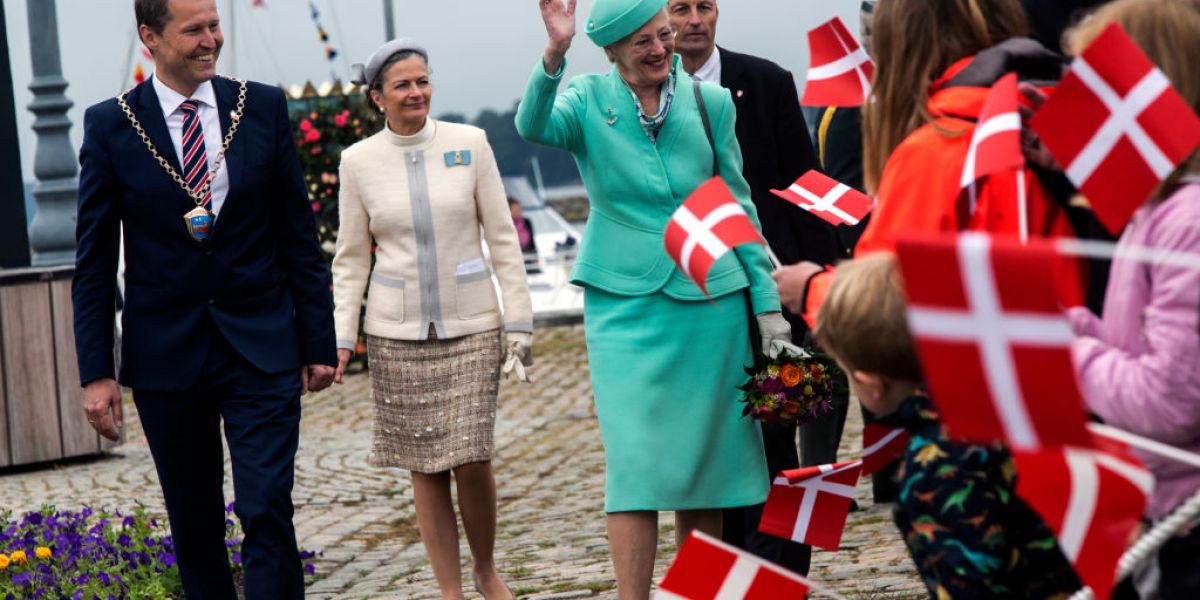Denmark Accuses Russia Of Spreading False Greenland News To Exacerbate US Tensions

Table of Contents
Denmark's Specific Accusations Against Russia
Denmark's accusations against Russia are not vague pronouncements; they are based on concrete evidence of a coordinated disinformation campaign. Danish intelligence services have reportedly uncovered a pattern of fabricated stories and misleading narratives circulated through various channels, designed to sow discord and undermine Greenland's autonomy.
-
Fabricated Stories: Specific examples include reports of secret US military bases being constructed in Greenland, vastly exaggerating their size and purpose. Other narratives inflate the environmental damage allegedly caused by US activities, aiming to turn Greenlandic public opinion against the US presence. These claims are unsubstantiated and contradict available evidence.
-
Sources of Disinformation: The disinformation campaign utilizes a multi-pronged approach. State-controlled Russian media outlets prominently feature these false narratives, while social media bots and troll farms amplify the messages, creating an echo chamber of fabricated information. This coordinated effort ensures maximum reach and impact.
-
Intended Impact: The ultimate goal appears to be threefold: to sow discord between Greenland and Denmark, undermining Greenland's autonomy; to damage the relationship between Greenland and the US; and to ultimately destabilize the Arctic region, creating an environment ripe for Russian influence.
-
Evidence Presented: While specific details of the evidence remain classified for national security reasons, Denmark has pointed to a consistent pattern of false narratives originating from known Russian sources, indicating a deliberate and coordinated effort to spread disinformation.
Greenland's Strategic Importance and its Role in US-Russia Tensions
Greenland's strategic importance is undeniable. Its geographic location, bordering the Arctic Ocean, and its vast reserves of untapped natural resources make it a focal point of geopolitical competition. The melting ice caps due to climate change further enhance its strategic value, opening up new shipping routes and access to previously inaccessible resources.
-
Arctic Resources: Greenland possesses significant mineral wealth, including rare earth minerals crucial for modern technology. Control over these resources is a major driver of geopolitical interest.
-
Strategic Location: Greenland's proximity to North America and its position along potential Arctic shipping routes makes it strategically vital for both the US and Russia. Control of this territory could significantly influence the balance of power in the Arctic.
-
US Military Presence: The US maintains a limited military presence in Greenland, primarily focused on tracking and monitoring activities in the region. The potential expansion of this presence, given Russia’s actions, is a significant point of contention.
-
Russia's Interests: Russia seeks to expand its influence in the Arctic, aiming to exploit its natural resources and secure access to new maritime routes. Greenland, therefore, represents a key target in Russia’s Arctic ambitions.
The Broader Implications of Russian Disinformation
The alleged Russian disinformation campaign against Greenland is not an isolated incident; it is part of a broader strategy of information warfare and hybrid warfare employed by Russia to achieve its geopolitical objectives. This tactic aims to destabilize its perceived adversaries by undermining trust and creating chaos.
-
Impact on International Relations: The spread of disinformation erodes trust among nations and hinders effective international cooperation. This campaign specifically targets the delicate relationship between Denmark, Greenland, and the US, a key alliance in the Arctic region.
-
Impact on NATO and the Arctic Council: Russia's actions undermine the stability of the Arctic Council and potentially strain relations within NATO, where several Arctic nations are members. This risks fracturing cooperation on vital issues like environmental protection and resource management.
-
Pattern of Russian Information Warfare: This incident is consistent with Russia’s broader pattern of deploying disinformation campaigns to influence political processes, sow discord within alliances, and discredit its adversaries.
-
Potential for Escalation: The ongoing disinformation campaign poses a risk of further destabilization in the Arctic and could escalate tensions between Russia and the West.
Denmark's Response and International Reaction
Denmark has responded forcefully to the alleged Russian disinformation campaign, issuing strong diplomatic protests and publicly condemning Russia's actions. This response is reflective of Denmark's commitment to maintaining the integrity of its territory and upholding the principles of truth and transparency.
-
Danish Countermeasures: Denmark is likely implementing counter-disinformation strategies, working to identify and debunk false narratives, and strengthening its cybersecurity defenses.
-
International Condemnation: While the level of international condemnation remains to be seen, many countries share concerns about Russia's use of disinformation as a tool of geopolitical influence. Expect increased scrutiny of Russian activities in the Arctic region.
-
Potential Sanctions: Further evidence could lead to international sanctions targeting individuals or entities involved in spreading disinformation, reflecting the growing recognition of information warfare as a significant threat.
Conclusion
Denmark's accusations against Russia of spreading false news about Greenland reveal the growing use of disinformation as a tool in modern geopolitical competition. The strategic importance of Greenland, its rich resources, and its crucial Arctic location are at the heart of this escalating conflict. Russia's alleged actions underscore the urgent need for stronger counter-disinformation strategies and increased international cooperation to address this escalating threat. The future stability of the Arctic region hinges on a collective response to this challenge.
Call to Action: Understanding the complexities of this situation—the accusations of Russia spreading false news concerning Greenland and the implications for US-Russia relations—is crucial. Stay informed about developments in this ongoing case of alleged disinformation and the wider context of Denmark, Russia, Greenland, and US geopolitical tensions. The battle for truth in the Arctic is far from over.

Featured Posts
-
 Kendrick Lamar Hampden Concert Ticket Prices Spark Fan Fury
Apr 26, 2025
Kendrick Lamar Hampden Concert Ticket Prices Spark Fan Fury
Apr 26, 2025 -
 New Marine Security And Surveillance Vessel For Royal Netherlands Navy A Fugro Damen Collaboration
Apr 26, 2025
New Marine Security And Surveillance Vessel For Royal Netherlands Navy A Fugro Damen Collaboration
Apr 26, 2025 -
 Wordles Cousin Complete Guide To Nyt Spelling Bee March 25 387
Apr 26, 2025
Wordles Cousin Complete Guide To Nyt Spelling Bee March 25 387
Apr 26, 2025 -
 Middle Managers The Bridge Between Leadership And Employees Why They Matter
Apr 26, 2025
Middle Managers The Bridge Between Leadership And Employees Why They Matter
Apr 26, 2025 -
 Deion Sanders Son Shedeur A Different Kind Of Athlete
Apr 26, 2025
Deion Sanders Son Shedeur A Different Kind Of Athlete
Apr 26, 2025
